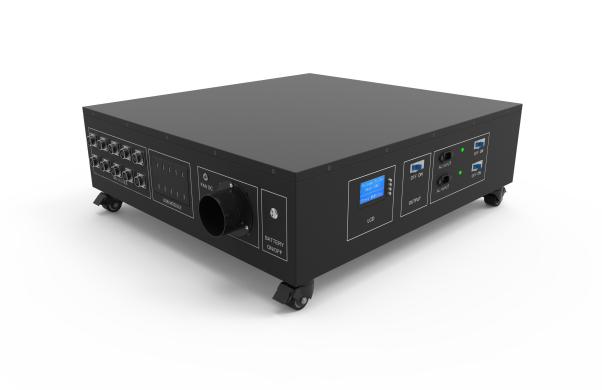- 22
- Nov
The characteristics and advantages of lithium batteries
【Summary】:
Lithium battery manufacturers lithium batteries have aroused great interest and attention for their high specific energy, long cycle life, wide operating temperature range and other characteristics. What is particularly attractive is that the average price of batteries per cycle is not high. Moreover, there is a downward trend. The following lithium battery manufacturers will introduce the advantages and characteristics of lithium batteries in detail.
Lithium battery manufacturers briefly describe the characteristics and advantages of lithium batteries

Lithium battery manufacturers lithium batteries have aroused great interest and attention for their high specific energy, long cycle life, wide operating temperature range and other characteristics. What is particularly attractive is that the average price of batteries per cycle is not high. Moreover, there is a downward trend. The following lithium battery manufacturers will introduce the advantages and characteristics of lithium batteries in detail.
Lithium battery manufacturers
Compared with other high-energy secondary batteries (such as Ni-Cd batteries, Ni-MH batteries, etc.), lithium-ion battery manufacturers have significant performance advantages, mainly in the following aspects.
High working voltage and large specific capacity
Using carbonaceous lithium intercalation compounds such as graphite or petroleum coke instead of lithium as the negative electrode will cause the battery voltage to drop. However, due to their low lithium insertion potential, the voltage loss can be reduced to a low limit. At the same time, choosing the appropriate lithium intercalation compound as the battery’s positive electrode and choosing the appropriate electrolyte system (which determines the electrochemical window of the lithium battery) can make the lithium battery have a higher working voltage (-4V), which is much higher than that of the aqueous system battery. .
Although the replacement of lithium with carbon materials will reduce the specific capacity of the material, in fact, in order to ensure that the battery has a certain cycle life in the lithium secondary battery, the negative electrode lithium is usually more than three times excessive, so the quality of the lithium battery in the lithium battery manufacturer The actual decrease in specific capacity is not large, and the volume specific capacity hardly decreases.
High energy density, low self-discharge rate
The higher working voltage and volumetric specific capacity determine the higher energy density of the secondary lithium battery. Compared with the currently widely used Ni-Cd batteries and Ni-MH batteries, secondary lithium batteries have higher energy density and still have great potential for development.
Lithium battery manufacturers use non-aqueous electrolyte systems for lithium batteries, and lithium-intercalated carbon materials are thermodynamically unstable in non-aqueous electrolyte systems. During the charging and discharging process, the reduction of the electrolyte will form a solid electrolyte intermediate (SEI) film on the surface of the carbon negative electrode, allowing lithium ions to pass but not allowing electrons to pass, and making the electrode active materials of different charged states in Relatively stable state, so it has a low self-discharge rate.
Good safety performance, long cycle life
The reason why lithium battery manufacturers use lithium as an anode battery is unsafe because multiple charge and discharge changes the structure of the positive electrode of the lithium ion battery, forming porous dendrites. When the temperature is increased, it will have a violent exothermic reaction with the electrolyte, and Dendrites can pierce the diaphragm and cause internal short circuits. Lithium batteries do not have this problem and are very safe.
In order to avoid the presence of lithium in the battery, the lithium battery manufacturer recommends that the voltage be controlled when charging. For the sake of safety, the lithium battery is equipped with multiple safety devices. During the charging and discharging process of lithium batteries, there is no structural change in the insertion and deintercalation of lithium ions on the cathode and anode (the lattice will expand and contract during the insertion and deintercalation process), and because the lithium intercalation compound is more stable than lithium , Lithium dendrites will not be formed during the charging and discharging process, thus significantly improving the safety performance of the battery, and the cycle life is also greatly improved.
